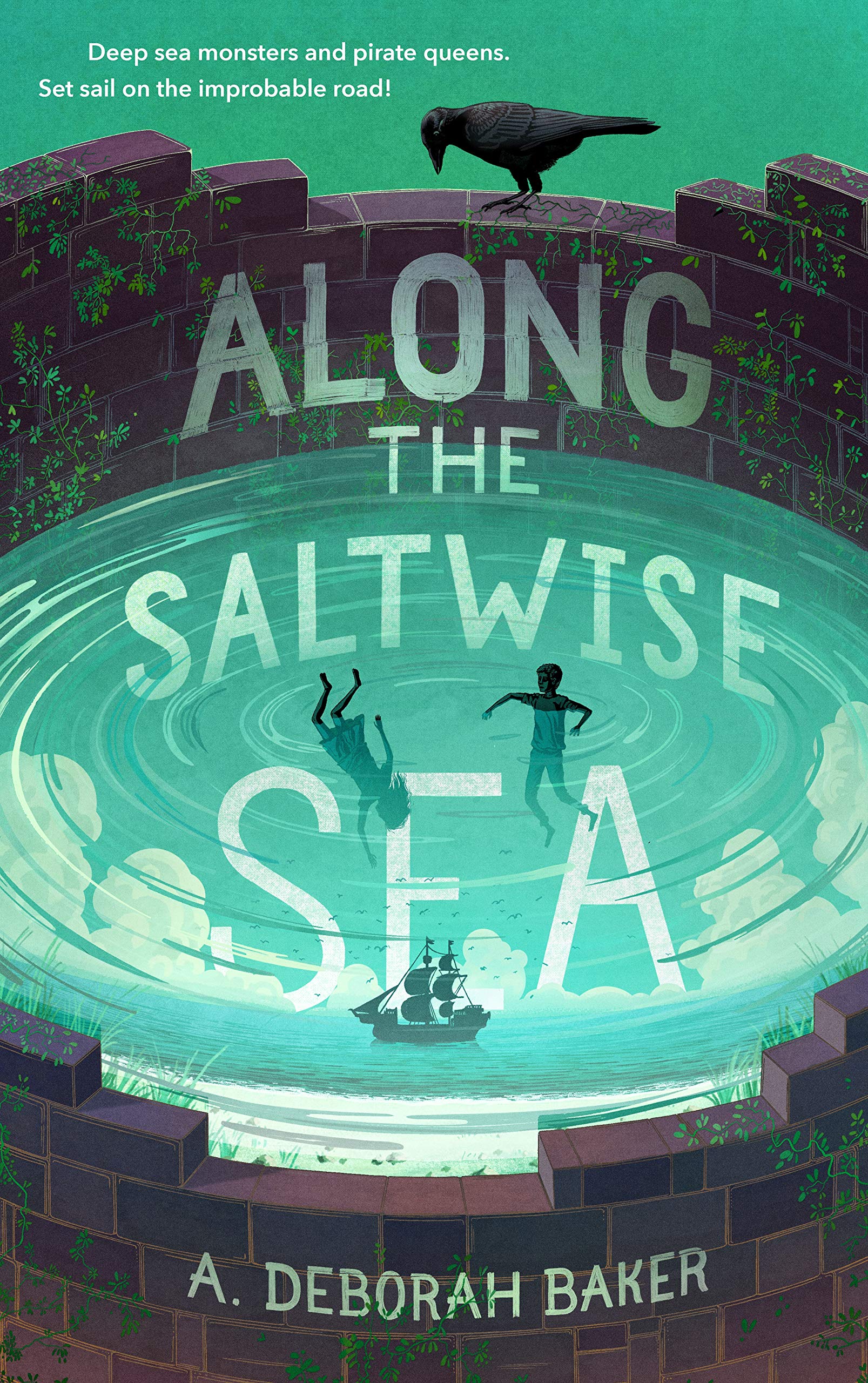Wanting to be the most famous person in the world is probably bad, right? Right?
Summary
They finish making the film and Ginger and Victor talk about what their goals were before Holy Wood was an option. Ginger has decided that Holy Wood is creating all sorts of opportunities for people to discover themselves, and she wants to be the most famous person in the world. Victor is a bit more concerned; he thinks that Holy Wood is using them all somehow. Back at the University, the Bursar has unearthed all of Riktor’s notes because Ridcully wants to go over them; he finds a section on the machine they’re trying to deal with and notices something about “measuring reality,” and tucks that bit away for further perusal. Detritus tries to court Ruby, but she expects a more modern approach to things, not just being thumped in the head with the rock. Gaspode trains Victor on how to ask for a day off from filming so he can go back to the city and get someone to look at the Boke of the Film. They try to translate some of the early entries with no success.
Buy the Book


Along the Saltwise Sea
The Librarian has been watching the latest click and something is bothering him, so he goes into the projection area, then searches through the film and rips out a few frames, then goes to get some information from the Necrotelecomnicon. Victor and Gaspode are talking with Laddie (the latest star of clicks, a very dim dog). He runs off and ends up coming across Ginger, who has collapsed after trying to open a temple door. They get her back to town, unawares that Holy Wood itself is dreaming… of waking up. The Librarian reads about the history of Holy Wood and how it destroyed a city, and someone was left to guard it, a story that he’s read many other places in a watered down sense. Azhural and M’Bu have amassed 363 elephants for their journey, and they set off. Gaspode and Victory carry Ginger home to her room above a clothes shop, and what they find in there is a sort of temple to herself, every inch covered with her images from clicks. Victor can tell there is magic in it, but isn’t sure what it all means.
Gaspode reminds Victor that they’re all going to the city tomorrow, and the dog decides to take Laddie out for a night on the town. They wind up getting spectacularly drunk because Laddie is even better at getting beer out of people than Gaspode is. Gaspode tells Laddie about how he was thrown into a river as a pup, and how Laddie shouldn’t listen to humans. His owners eventually find him and chain him up for the evening. Gaspode muses on what it would feel like to belong to someone, but decides it’s better to be wolf-like and mean. The cat and mouse show up; the talking animals are all leaving the hill because it’s getting too spooky. The mouse and cat wonder if they couldn’t make it in moving pictures. Dibbler wakes in the middle of the night and jots down his idea of Blown Away, the greatest moving picture that will ever be made.
Ginger wakes right before dawn, eyes glowing, and heads toward the hill. The mouse tells Gaspode that she goes up there every night—they’d thought it was a romance thing. Gaspode knows something’s wrong, so he follows Ginger even as the other animals make fun of him for it. He follows her up the hill where she starts to clear sand to open the door. On the other side there are voices and Gaspode has two different dreams surface, one where he’s a famous dog who is loved, and another where he’s a member of a wolf pack, eating humans. He presses his nose to Ginger’s leg to try and wake her. It works and she’s horrified to find herself here again, rushing back to town. Dibbler has assembled a mass of people to recreate Ankh-Morpork as a set, and Silverfish is adamant that they cannot build this and then burn it down as the script calls for. Dibbler has him thrown out and threatens to disown his own nephews if they don’t have it built in a day. Gaspode tries to tell Victor about what happened to Ginger, but he’s caught up in the flurry around the new movie. There’s a lot of quarreling happening around its development, but the set looks more like Ankh-Morpork than the city itself.
Commentary
Victor thinks to ask Ginger what she wanted to be before acting in moving pictures was a option, and her response is “I didn’t know. I just knew I didn’t want to be a milkmaid.” Y’all. Okay, so there’s a thing that you will hear in film and theater and most performing arts professions, often from teachers and other professionals and that is: If you can picture yourself doing anything else with your life, go do that instead. The point being that it’s so hard to “break into” these industries that you can spend the majority of your career (and life) not doing anything. So if it isn’t your One True Passion, you should probably seek out that other passion you’ve got because you’re likely to be more pleased with that outcome. It’s a pretty garbage piece of advice to my mind because it ignores why that problem exists in the first place; it’s not tough to break into the system just because it is, but because these industries are fueled by nepotism and geared toward people with massive amounts of privilege. You cannot get away from it.
But. The truth is, most people who want in are not the ones who could never imagine a life doing anything else. They’re people who have responses like Ginger: I just knew I didn’t want to sit in an office. I couldn’t go work the same job as my dad and grandpa. I don’t want to be a farmhand my whole life. It’s not simply a passion, it’s an escape from whatever you assume life has in store.
Ginger later points out that when the circus came through town, everyone cheered the tightrope girl, but they wouldn’t even allow her to climb a tree, which is another aspect of that escape: The appeal of acting (and writing and directing and) is creating a life outside the parameters assumed for you. This is part of the reason why it’s not considered a respectable job, by the way—people will tell you it’s because of the instability and so on, but that’s not at the root of why many people are discouraged from it. My own grandmother was offered acting representation when she was very young, but her mother wouldn’t allow it because the assumption at the time was that “actress” was basically a code word for “sex worker.” People tacked on all these ideas because they were really just railing against what they believed an artistic life represented; the ability to exist off the beaten life path of the people around you.
That’s a long-winded sidebar that doesn’t tackle the real issue that infects Ginger due to the Holy Wood siren call—the desire to be the most famous person in the world. Victor’s own musings around this issue are actually spot on; the question of whether ambition could constitute magic, the idea of dreaming to be something rather than dreaming of having something, and so on.
The bits with Gaspode thinking about how he might sort of wish he belonged to a person just… ugh, don’t do this to see, Pratchett, scraggly dogs are definitely a soft touch for me. Especially when said scrappy mutt can do contract negotiation for you. That’s a real keeper.
The creation of Blown Away is meant to harken back to major Hollywood productions that went off the rails in terms of financing and spectacle. The main parallels that come to mind off the top of my head are obviously Gone With the Wind (a civil war, burning a city, romance), Ben-Hur (the mention of needing a chariot scene), and Cleopatra (budget and scale, the love triangle). Cleopatra in particular was the most expensive film ever made in its time, and created plenty of locations whole cloth. It’s initial cut was something like six hours, which is also being called out here with Dibbler’s unrealistic expectations on time, resources, and sheer volume of creation.
Asides and little thoughts:
- There’s a footnote making another joke about how dwarfs all look the same, and how their courtship rituals are about figuring out what sex the other dwarfs is, and again, the way it’s written probably makes it come off more queer than intended, and now I’m just imagining some dwarfs wanting to make sure they can have kids with their crush, while other dwarfs don’t really care.
- Weird thing that caught my eye this time around: The Librarian keeps watching the clicks over and over because people aren’t inclined to ask a 300 pound orangutan to leave between showings. But this is actually incorrect for a story parodying the beginning of cinema because in early days, plenty of theaters operated on a continuous showing model where you could come in at any time and stay all day if you purchased a ticket. Alfred Hitchcock is partly to blame for changes to that model; when Psycho was released, he created a campaign telling theater-goers that “no late admissions” would be allowed because he was concerned about audiences feeling cheated out of seeing star Janet Leigh if they happened to arrive at the screening after her character was murdered—one of the film’s many major twists.
- Describing being woken by having a wet dog nose pressed against you as akin to “having a small piece of defrosting liver pressed lovingly against you” is upsettingly accurate.
- We get tons of shoutouts in this sections, from the parodied studio names, to the talk of making movies like Wizard of Oz and Tarzan, to Laddie being an obvious stand-in for Lassie, to the “I want to be a lawn” Garbo joke, to a freaking Blues Brother paraphrase…
Pratchettisms:
Dibbler had two offices now. There was one where he shouted at people and a bigger one just outside it where people shouted at each other.
“For example, in the Agatean language the signs for ‘woman’ and ‘slave’ written down together actually mean ‘wife.’”
Apart from anything else, in order to forbid it, you’d have to know what is was, which was forbidden. But it definitely contained the sort of information which, once you know it, you wished you hadn’t.
He was dimly aware that where people stayed was often infested by the Common or Greatly Suspicious Landlady, and he felt that he had enough problems as it was.
Ambition was magical. Powerful, yes, but not magical… surely?
“You’re just a running dog of the human imperialists,” said Gaspode severely.
Brother against brother! Women in crinoline dresses slapping people’s faces! A mighty dynasty brought low!
Anyway, it all caused a civil war, which is something every mature civilization needs to have had…
Next week we’re up to “I don’t see why—“ the Dean gurgled, as they dragged him off.










